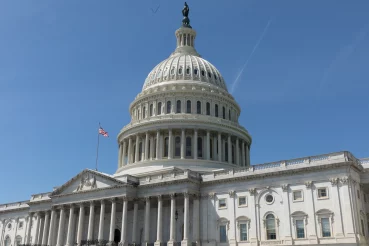On March 27th, the President signed into law the Coronavirus Aid, Relief, and Economic Security (CARES) Act. This $2.2 trillion-dollar, 880 page piece of legislation contains an enormous amount of information that touches on many different aspects of our personal and professional lives. We thought it would be helpful to highlight portions which may affect you. Additionally, we have included an attachment from the U.S. Senate Committee on Small Business & Entrepreneurship which provides a summary and resources related to the Paycheck Protection Program for Small Businesses.
RELIEF FOR INDIVIDUALS
Tax Rebates
The CARES Act gives advance tax rebates for the 2020 tax year of up to $1,200 per individual (or $2,400 for joint return filers), plus $500 per child. The rebates phase out for single individuals with incomes between $75,000 and $99,000, and joint return filers with incomes between $150,000 and $198,000. Rebates are not available for single individuals and joint return filers (with no children) with incomes exceeding $99,000 and $198,000, respectively. The IRS will use tax return information provided on the taxpayer’s 2019 tax return if filed already (or alternatively the taxpayer’s 2018 tax return) to issue the advance tax rebate. If a taxpayer initially does not receive the full rebate but qualifies for a larger amount when filing their 2020 tax return, the taxpayer would be eligible for the difference.
Due Dates and Filing Deadlines
The ACT extends the due date for filing Federal income tax returns and Federal income tax payments by individuals, estates, and trusts, to July 15, 2020 (usually due April 15, 2020). The extension is automatic; you do not need to file an extension form. Any interest, penalty, or addition of tax for failure to file Federal income tax returns or failure to pay Federal income taxes is postponed and will not begin to accrue until July 16, 2020. If you require additional time to file your return beyond July 15th, an extension form will need to be filed to extend the filing period until October 15, 2020. Many states have already followed the IRS lead by extending their filing deadlines as well. However, as of today, some states have not extended yet and others have extended to a date other than July 15th. This is a fluid situation which we will continue to monitor and provides updates as needed.
The deadline to make IRA contributions for 2019 is also extended to July 15th .
The Federal deadline for 1st quarter 2020 estimated tax payments has also been extended to July 15th.
Charitable Contributions
The CARES Act increases the income limitations on charitable deductions by suspending the 50% adjusted gross income (AGI) limitation for 2020. Thus, individuals may deduct qualified contributions in 2020 up to 100% of their AGI. Any excess qualified contributions are carried forward to future years in the same manner as other charitable contribution carryovers.
To further incentivize charitable contributions, the CARES Act also provides an above-the-line deduction for “qualified charitable contributions” of up to $300 for individuals who do not itemize deductions. A “qualified charitable contribution” is a charitable contribution which is made in cash to a charitable organization that is not a supporting organization, Donor Advised Fund or a contribution carryover from a prior year.
Retirement Plans
The bill eliminates all retirement plan required minimum distributions (RMDs) for 2020. The CARES Act also provides a waiver of the 10% early withdrawal penalty for distributions up to $100,000 from qualified retirement accounts for coronavirus related purposes made on or after January 1, 2020. “Coronavirus related” distributions may be recontributed (in one or more contributions up to the amount distributed) within three years from the date the distribution was received without regard to annual contribution limits. To the extent the distribution is not repaid within the three-year period, the income inclusion on a coronavirus related distribution can be spread ratably over three tax years.
RELIEF FOR BUSINESSES
Paycheck Protection Program (See FAQ Small Business Loans)
Probably the most interesting of all programs, eligible businesses may receive up to $10,000,000 in loans, based upon a formula. The loans will be made through the SBA and FDIC lenders. Exact details on the program are still being finalized, however, you should start the application process as soon as possible if interested. A portion of or potentially all of the loan is eligible to be forgiven if employment and wage levels are maintained. Initial highlights include:
- Small businesses with 500 or fewer employees during the February 15 – June 30, 2020 period are eligible. Some industries with more employees may qualify under certain circumstances.
- Loan is based upon 2 1/2 times the monthly payroll, plus other costs, up to $100,000 per employee.
- No personal guarantees.
- Loan use is targeted for salary, paid sick leave, insurance costs, mortgage, rent and utility payments of the business.
Employee Retention Credit for Employers Subject To Closure Due To COVID-19
Businesses and non-profits that do not receive Small Business Administration (SBA) loans eligible for forgiveness may be entitled to claim refundable credits against their quarterly payroll tax liabilities. The Cares Act offers eligible employers a credit against payroll taxes equal to 50% of wages paid to employees not working due to the business’s mandatory COVID-19 related shut down or for experiencing more than a 50% decline in gross receipts compared to the same quarter in the prior year. The quarterly payroll tax credit applies to the first $10,000 in aggregate wages per employee (per year). The employee retention credit applies only to wages paid after March 12, 2020, and before January 1, 2021.
Payroll Tax Deferral
To help businesses with cash flow needs, and to help them retain employees, the Act defers the employer share of payroll taxes from the period beginning on March 27, 2020 and ending December 31, 2020. The deferred tax liabilities are to be paid 50% by December 31, 2021 and the other 50% by December 31, 2022. You cannot take advantage of this program if you take advantage of the loan forgiveness portion of the Paycheck Protection Program below. There are also special computations for self-employed individuals related to self-employment tax.
Net Operating Losses (NOL’S)
The Tax Cuts and Jobs Act (TCJA) eliminated many of the benefits associated with NOL’s beginning in 2019. The CARES ACT allows for a five-year carryback of NOL’s and eliminates the 80% of taxable income limitation for NOL’s that arose during 2018, 2019 and 2020 by businesses. The carryforward period for NOL’s remains unchanged. Businesses will be allowed to carryback the 2018 NOL five years, to amend or modify returns back to 2013 in order to take the carryback claim.
The Act also eliminates the excess business loss limitation rules related to pass-through entities and sole proprietors for the years 2018, 2019 and 2020.
Business Interest Expense Limitations
The Tax Cuts and Jobs Act (TCJA) limited the amount of allowable deductions for business interest. Generally, the limitation was set at 30% of the taxpayers adjusted taxable income. The CARES ACT increases the limitation to 50% for 2019 and 2020 for taxpayers. The 2019 taxable income amount may be used for the 2020 limitation as well should it be beneficial and provided you elect to do so. Partnerships are subject to slightly different rules.
Qualified Improvement Property Technical Fix
In the TCJA mentioned above, Congress also inadvertently defined qualified improvement property as 39-year life property, thus not qualifying for bonus depreciation. In the CARES ACT, it corrects the defined life of qualified improvement property to 15 years, retroactively, for property place in service after 2017. This allows bonus depreciation to be taken on this special class of asset.
As you can see from this brief summary, the CARES Act offers material relief, matched only by its length and complexity. We will of course keep you informed as additional details are rolled out.
Most importantly, we at Joel Isaacson & Company care about you, our clients and friends. Please know that we are here to help you in any way we can.
Stay safe.





